These are Their Words

In celebration of 50 years of women in the Corps, we reached out to several alumnae spanning the last 50 years, from L Squadron, the female-only cadet unit that introduced women to the Corps in 1973, all the way to this semester’s regimental commander. We provided a set of questions and invited them to answer whichever they chose. Interested to see if we could track the Corps’ adaptation to female cadets across their time in the regiment, we are eager to share their triumphs, hardships, and reflections. These are their words.
FEATURED VOICES
DEE (DODSON) MORRIS ’76
L Squadron cadet during the first year women were permitted in the Corps
PATIENCE LARKIN ’87
Echo Company, 2nd Battalion Staff (1986-1987), Second Alumni Director for the Corps
DENISE (SHUSTER) GREENFIELD ’88
Hotel Company, First Female Regimental Commander (1987-1988)
ELEANOR FRANC ’19
Delta Company, Growley II Handler (2017-2018)
BROOKE JOHNSON ’23
Bravo Company, 10th Female Regimental Commander (Fall 2022)
CLAIRE SEIBEL ’23
Lima Company, 11th Female Regimental Commander (Spring 2023)
When you were a cadet, what were your living arrangements?
Dee (Dodson) Morris ’76: L Squadron was housed on the first floor of Monteith Hall, but there was no room for me there when I joined, so I was assigned to live with a civilian on Monteith’s third floor.
Patience Larkin ’87: I lived on the third floor of Rasche Hall all four years. My room was in the "newer" section of Rasche (the side facing Alumni Mall), and all the ladies from E and F companies lived in this same area, so as to be close to a women's latrine.
Denise (Shuster) Greenfield ’88: I was a member of Hotel Company and lived on the 4th floor of Rasche Hall. It was coed, with men and women living on the same floor, but the women were all in one section at the end of the hall. My roommate was also in H Company, but my neighbors were women from Golf Company. It was nice to be neighbors with women from another company. I never felt we were far from our male buds, so even though we had our own section of the hall, I still felt like I was very much an integral part of the company.
Eleanor Franc ’19: As a freshman, I lived in Eggleston with two other women from F-19. As a sophomore, I lived in Pearson with another sophomore female from Delta. As a junior, I lived with Tank and another handler, Hanna Kobayashi. As a senior, I lived in New Cadet Hall with a couple other females from other companies and various ROTCs.
Brooke Johnson ’23: I lived in a three-person room. I ratted in Echo Company and I was fortunate to be able to have female roommates that were in the same company as me.
Claire Seibel ’23: All four years I lived by company with both males and females on the hall. My roommate was in my company all but one semester when I roomed with an awesome member of Mike Company which bordered Lima in the halls.
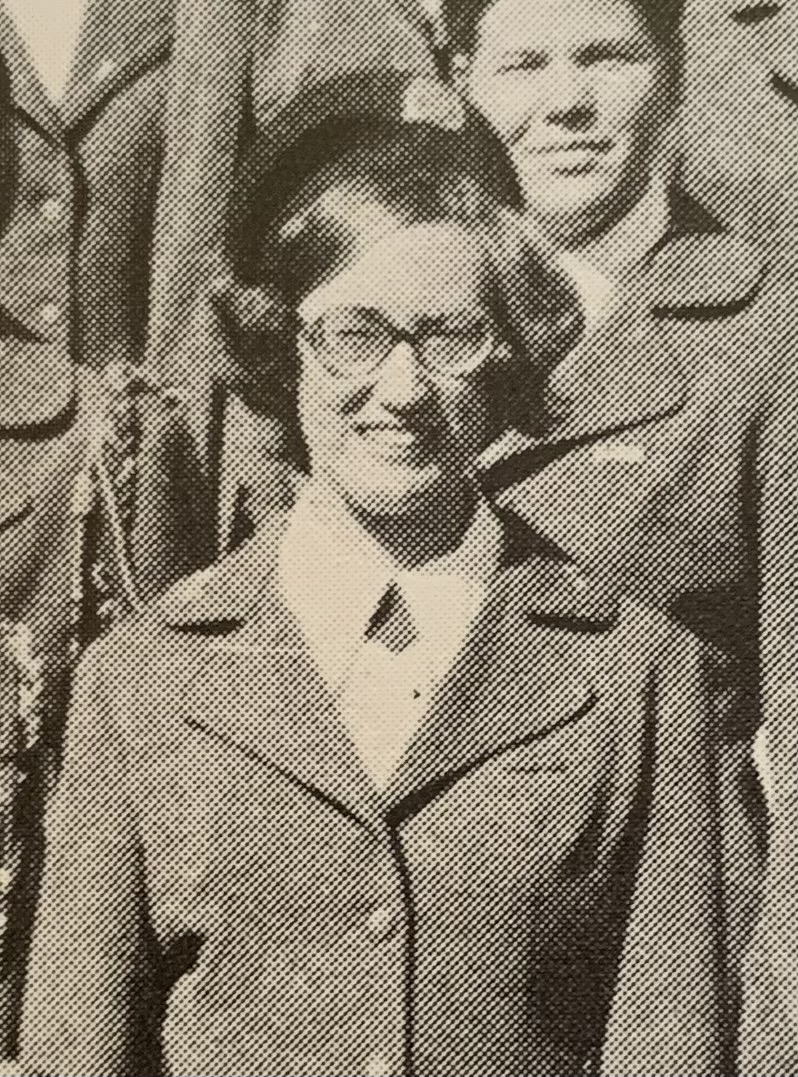
What was one of the largest hurdles that you had to overcome as a woman in a predominantly male organization?
Dee (Dodson) Morris ’76: No one to talk to about the issue. I was the only woman in my Army ROTC class.
Patience Larkin ’87: I didn't feel there were a lot of major hurdles based on my gender. There were a handful of hard-working, tough women who had come before me, to include Sandy Siegrist, E-85, my cadre sergeant during new cadet week who later became the first female regimental executive officer. Before the Tailhook scandal, sexual harassment was not addressed, in the Corps or in the active military. Many males had "girlie" posters up in their rooms, raunchy jodies were sung, etc. So, to fit in and not be singled out as difficult, we ladies put up with that kind of stuff during those years.
Denise (Shuster) Greenfield ’88: I was incredibly fortunate to feel welcomed in the Corps from day one. I never had the experience of feeling somehow different because I was a woman. My male buds, many of whom remain good friends to this day, were supportive and treated me with the same respect with which they treated one another.
Eleanor Franc ’19: After spending 3 1/2 years in one of the services with the least female representation, I can honestly say the VTCC was one of the most empowering organizations as a young woman pursuing a military career. There are so many like-minded young women to network with and learn from. The faculty and staff have extensive female representation and were excellent mentors for myself and my peers over the years. The VTCC is leagues ahead of the Marine Corps in this regard and was a great foundation for me entering the service.
Brooke Johnson ’23: I felt the Corps needed a more substantial presence of not only diverse cadets in leadership roles, but females as well. That was one of the main reasons I was so intrigued in applying for leadership positions, to be able to represent that diverse, female presence that others could see.
Claire Seibel ’23: I do not think my gender created any additional hurdles. I never thought, "Here's how I need to do this as a female leader." I just focused on doing the job to the absolute best of my ability.
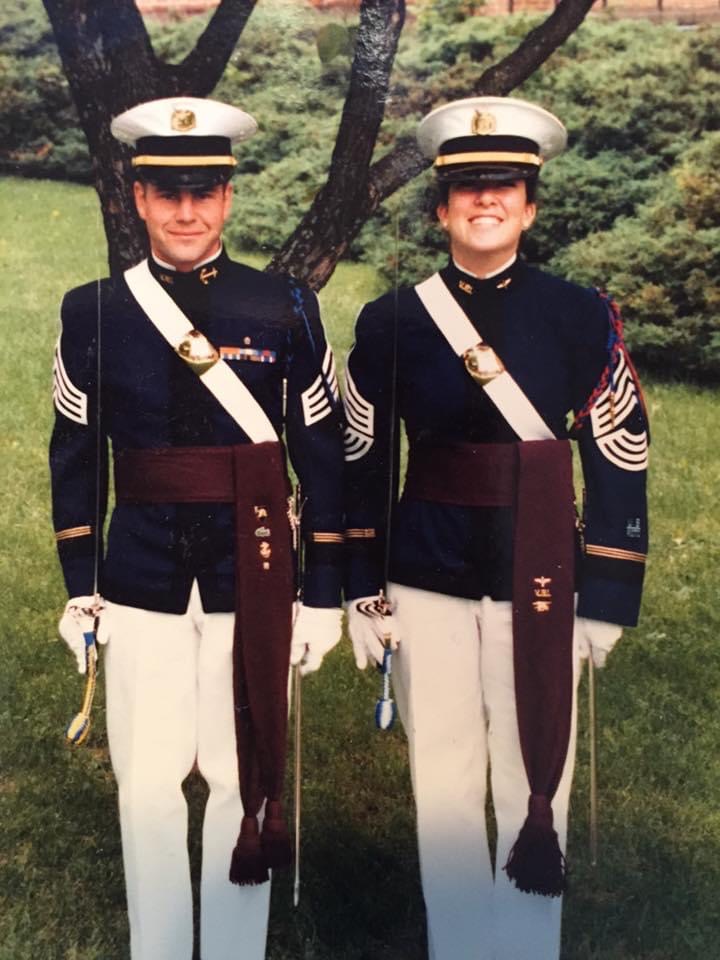
If you could go back to your cadet days, what is one piece of advice you would provide yourself?
Dee (Dodson) Morris ’76: The seeming abuse or harassment is not personal.
Denise (Shuster) Greenfield ’88: Soak it all up! The Corps is a tremendous leadership laboratory. It’s been 35 years since I graduated, and I’m grateful for the opportunity it gave me to practice my leadership skills in a “safe” environment.
Claire Seibel ’23: You are capable of more than you think.
After you graduated, did you feel as though your experience as a woman in the Corps of Cadets prepared you for your chosen profession?
Dee (Dodson) Morris ’76: Yes. I had much thicker skin than when I started.
Patience Larkin ’87: After a number of assignments and working alongside Air Force officers who had experienced Officer Training School, the United States Air Force Academy and "once-a-week ROTCs," I knew the VTCC had prepared me better than all others.
Denise (Shuster) Greenfield ’88: Absolutely! I had the opportunity to figure out my leadership style before I began leading Marines, and I was able to get comfortable making the tough decisions that come with being in a leadership role. I was also able to get comfortable being a woman in a predominantly male organization, an experience that directly translated – in so many ways – to my experience being a woman in the Marine Corps.
Eleanor Franc ’19: In some ways yes, in others, no. The Marine Corps has far less female representation, and still has a long way to go in terms of successfully integrating females. The VTCC showed me a great example of what female integration looks like, which in turn made it very easy to spot the areas my service needs to improve.
Claire Seibel ’23: It certainly helped me in my internship in the intelligence community. People in the office quickly noticed how I dressed more professionally, worked harder, was more respectful, and carried myself with more confidence and professionalism compared to the interns doing the "regular" college experience.
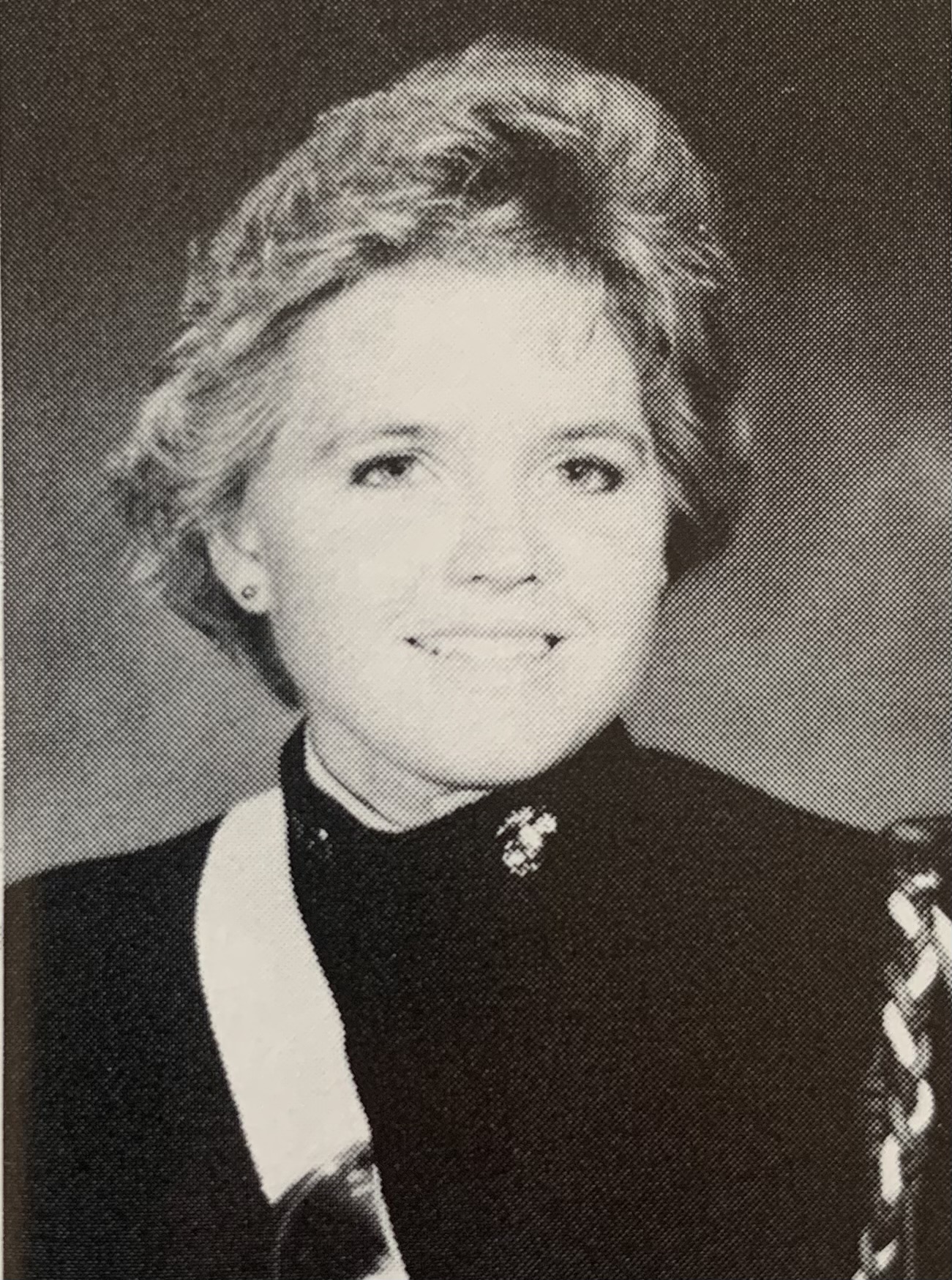
Looking back, what is one thing that you would change about how the Corps was when you were a cadet?
Dee (Dodson) Morris ’76: Many decisions were put to class votes on whether the women would be “allowed” to enter certain traditions. With only four women in the Class of 1976, we never won any of those votes. One was about carrying sabers and whether we could buy them (thank you to Mike Simpson for slipping me the order form). At Ring Dance, the ladies of L Squadron carried a spring bouquet in protest rather than the traditional roses. My saber was carried by my date.
Patience Larkin ’87: I would have hired Senior Enlisted Advisors.
Denise (Shuster) Greenfield ’88: There is little I’d change about my experience. I simply loved being in the Corps. I do wish we would have had the opportunity to pursue the minor in leadership studies that is available to our cadets today. And the support we now provide our Citizen-Leaders is tremendous. Although we had what we called at the time “Corps Only” cadets, the Corps didn’t provide them with the resources to equip them for those career-starting jobs like we do today.
Brooke Johnson ’23: The culture of comparing and competing can create a stressful environment for some who may be progressing at different rates than others. One thing that I wish I could have changed as a cadet was the culture of accepting other people. College is a time when everyone grows and develops their personality, fitness levels, and professional goals.
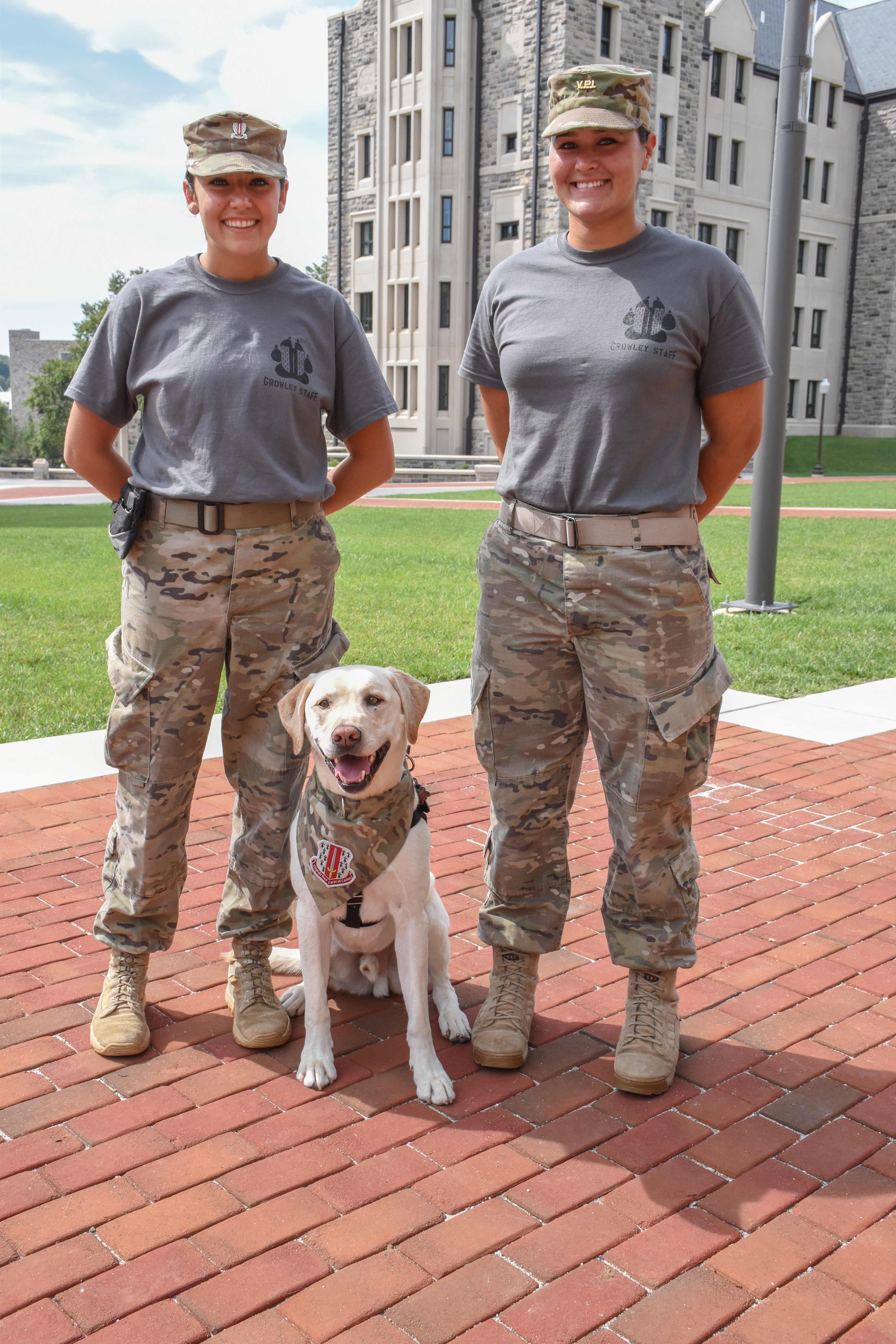
Discuss your thoughts on the term “belonging” as it relates to your experience as a cadet in the Corps.
Dee (Dodson) Morris ’76: During my time in the Corps, I felt that the women were tolerated and treated as a curiosity rather than accepted. It wasn’t until years later during a milestone reunion that Steve Taylor reminded the rest of my buds that I was the only woman in my class who regularly attended reunions and contributed generously to the Corps; that it was about time that they fully accepted that I was a member of the class.
Denise (Shuster) Greenfield ’88: I think about belonging two ways: the experience of being wholly accepted for who you are, and the sense of being committed to something greater than yourself. The Corps allowed me to experience both. I think about it this way: we may all wear the same uniform, and while we all certainly understand the importance of becoming leaders of character, the Corps creates space for each of us to do that in our own way.
Eleanor Franc ’19: For any cadet who is searching for that sense of belonging, there is a place for everyone in the Corps, whether it’s a leadership role or in one of the extracurricular organizations.
Brooke Johnson ’23: I believe the term belonging is an integral part of being a part of this program, and while during my time as a cadet, I found no issues with feeling as if I belonged, I found myself assisting others who felt as if they did not.
Claire Seibel ’23: I compare my experience in VTCC to my siblings' experiences as civilian students at VT and JMU. It takes time for "regular" students to find their circle of friends and a sense of belonging. In the Corps, you essentially have built-in friends from the first few minutes and the experience of leaning on your buds forms strong friendships.
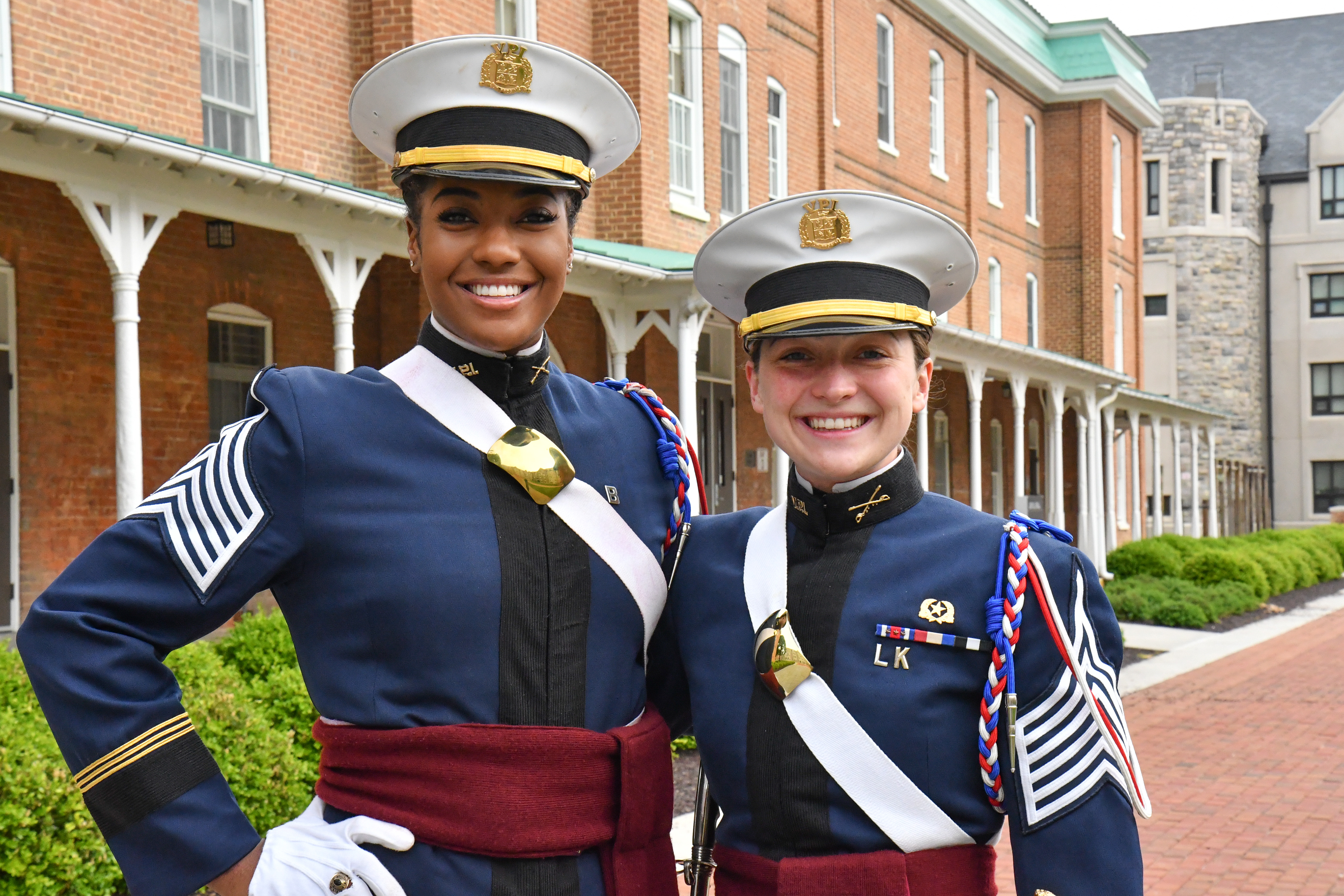
Virginia Tech was the first corps amongst military colleges and academies to admit women. Our experiences laid the framework for other institutions incorporating women. What is one thing that makes you proud about how Virginia Tech incorporated women into the Corps of Cadets ?
Dee (Dodson) Morris ’76: We didn’t require an act of Congress or order of the Supreme Court to admit women to the Corps of Cadets.
Denise (Shuster) Greenfield ’88: It seems to me we incorporated women into the Corps of Cadets without a whole lot of fanfare. That speaks volumes about the way we approach the business of creating leaders. Sometimes, when you venture into an initiative and you aren’t expecting to have issues, you don’t find them. That’s certainly not to say we haven’t had to learn and adapt, but we seemed to do so with the expectation that we were always going to succeed. That mindset creates a culture of leadership, inclusion, and belonging that becomes part of the DNA of the organization. Our cadets carry that mindset with them into military service and into their roles in the private sector.
Eleanor Franc ’19: The VTCC should be proud of its integration of women. I never felt I was at a disadvantage due to my gender. I was simply another cadet, just like everyone else. I was evaluated on both my academic and leadership abilities in the same way as everyone else, and never once felt like my gender played a role.


